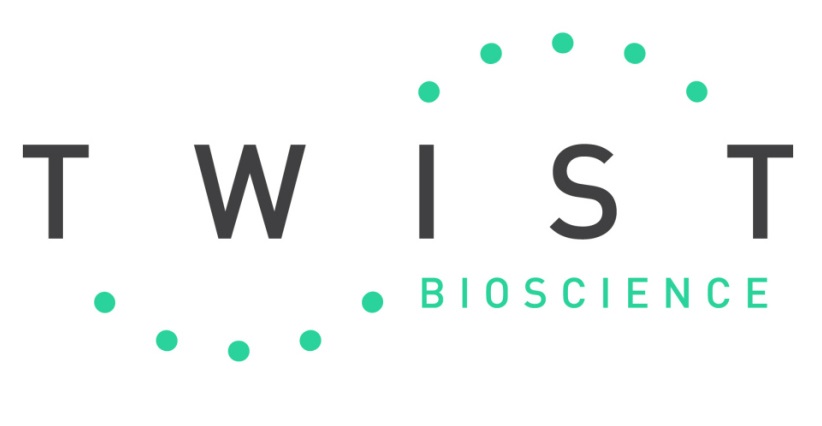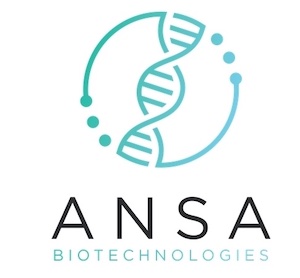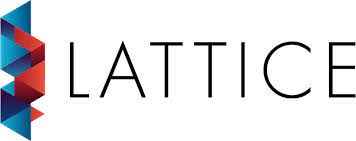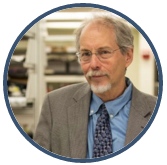GP-write is being implemented through a Center of Excellence for Engineering Biology, a new, independent nonprofit organization that is managing initial planning and coordination efforts. These efforts include supporting the formation and work of multi-institutional and interdisciplinary research teams working in a highly integrated fashion, responsive to and engaged with a broad public outreach.
The Center has created a neutral environment for international participants and will accept funding from the public, private, philanthropic and academic sectors, including international funding agencies. However, this in no way precludes direct grants and sponsored research agreements by government agencies and others to academic and industrial laboratories through more traditional mechanisms.
GP-write Leadership
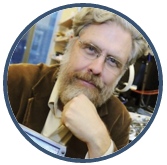
George Church, Ph.D.
Founding Core Faculty Member, Wyss Institute at Harvard University Professor of Genetics, Harvard Medical School [accordion] [accordion_item title="View Bio"]George Church George is Professor of Genetics at Harvard Medical School and Professor of Health Sciences and Technology at Harvard and the Massachusetts Institute of Technology (MIT). He is Director of the U.S. Department of Energy Center on Bioenergy at Harvard and MIT and Director of the National Institutes of Health Center of Excellence in Genomic Science at Harvard. His 1984 Harvard PhD included the first methods for direct genome sequencing, molecular multiplexing & barcoding. These led to the first genome sequence (pathogen, Helicobacter pylori) in 1994. He helped initiate the Human Genome Project in 1984 and the Personal Genome Project in 2005. His innovations have contributed to nearly all "next generation" genome sequencing methods and companies (CGI, Life, Illumina, Nanopore). This plus chip-based DNA synthesis and stem cell engineering resulted in founding additional application-based companies spanning fields of medical diagnostics (Knome, Alacris, AbVitro, Pathogenica ) & synthetic biology / therapeutics (Joule, Gen9, Editas, Egenesis, enEvolv, WarpDrive). He has also pioneered new privacy, biosafety, environmental & biosecurity policies. His honors include election to NAS & NAE & Franklin Bower Laureate for Achievement in Science. He has coauthored 402 papers, 74 patents & one book (Regenesis).[/accordion_item][/accordion]
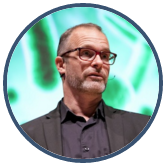
Andrew Hessel
Chairman of the Board and Co-Executive Director, Genome Project-writePresident at Humane Genomics Inc. [accordion] [accordion_item title="View Bio"]Andrew Hessel is a catalyst in biological technologies, helping industry, academics, and authorities better understand the changes happening in life science. As an Autodesk Distinguished Researcher, he leads a multidisciplinary team exploring computer-aided design and manufacturing for biotechnology and nanotechnology R&D. He is also the co-founder of the Pink Army Cooperative, the world’s first cooperative biotechnology company, which is aiming to make open source viral therapies for cancer.Trained in microbiology and genetics, Andrew has continually worked at the forefront of genomics, first to read and comprehend bacterial, human, and other genomes and more recently to write them. He believes the technology that makes this possible, called synthetic biology, is revolutionary and that it will eventually surpass information technology (IT) as an economic engine and driver of societal change. He speaks widely on topics that include cells as living computers, life science as an emerging IT industry, and biological safety and security. Since 2009, Andrew has also been the co-chair of Bioinformatics and Biotechnology at the Singularity University, located at the NASA Research Park in Mountain View, California. There, he educates graduate students and executive participants on the disruptive shifts underway in life science and helps them become actively engaged in these changes. In November, 2011, he was appointed a fellow at the University of Ottawa, Institute for Science, Society, and Policy, focusing on how next-generation technologies shape society’s future. Andrew has given dozens of invited talks related to synthetic biology, for groups that include Autodesk Inc., the FBI, the United Nations Biological Weapons Convention Implementation Support Unit, TEDx, Intel Inc., the New America Foundation, Alberta Innovates Technology Futures, the Oil Sands Leadership Initiative, and Statoil.[/accordion_item][/accordion]

Farren Isaacs, Ph.D.
Associate Professor of Molecular, Cellular and Developmental Biology, Biomedical Engineering and Systems Biology at Yale University[accordion] [accordion_item title="View Bio"]Farren Isaacs is Associate Professor of Molecular, Cellular and Developmental Biology, Biomedical Engineering and Systems Biology at Yale University. His research lies at the interface of biology and engineering with a particular focus on the development of genome and cellular engineering technologies. His lab uses these technologies to construct organisms with new genetic codes and for global reprogramming of cellular behavior to uncover new biological phenomena and to expand the functions of living systems with applications in biotechnology, materials science, environmental health, and medicine. Prior to starting his lab at Yale, Dr. Isaacs pioneered enabling technologies for genome and RNA engineering for probing and programming cellular function. He has been named a “rising young star of science” by Genome Technology Magazine, a Beckman Young Investigator by the Arnold and Mabel Beckman Foundation and recipient of a Young Professor award from DuPont, Inc. Dr. Isaacs received his B.S.E. in Bioengineering from the University of Pennsylvania, Ph.D. in Biomedical Engineering-Bioinformatics at Boston University, and was a research fellow in Genetics at Harvard Medical School.[/accordion_item][/accordion]

Todd Peterson, Ph.D.
Founder and Principal, GenApex Bio [accordion] [accordion_item title="View Bio"] Dr. Todd Peterson is Founder and Principal at GenApex Bio (GenApex Biotechnology Consulting), a board practice, investment and advisory services LLC based in Coronado, CA.
He has >35 years of experience in biotechnology and life sciences research and development across the areas of molecular and cell biology, nucleic acids and genomics product and technology development. His experience encompasses clinical diagnostics, life science research tools and drug discovery technologies, products, and markets. Previously, Dr. Peterson was Chief Scientific Officer at The Allen Institute in Seattle WA, overseeing science and technology strategy and growth initiatives across unit Institutes for Brain Science, Cell Science, Immunology, and the Paul G. Allen Frontiers Group. Prior to joining the Allen Institute, Dr. Peterson was Chief Technology Officer at Synthetic Genomics, Inc., a leader in synthetic biology and applied genomics technologies developing a robust portfolio of breakthrough solutions addressing major global issues. Prior to joining SGI, Dr. Peterson led Genomics and Synthetic Biology R&D at Invitrogen/Life Technologies (now Thermo Fisher Scientific), a global leader in life science tools. Prior to Life Technologies, Dr. Peterson held R&D positions with increasing leadership responsibilities and scope at Genicon Sciences, Trega Biosciences, Hybritech and Gen-Probe where he focused on technology research, product development and commercialization. Dr. Peterson was a postdoctoral fellow at the Max Planck Institute in Cologne Germany after receiving his Ph.D. in Microbiology at the University of Southern California School of Medicine. He obtained his M.A. in Biological Sciences and B.A. in Molecular Biology and Biochemistry at the University of California, Santa Barbara.[/accordion_item][/accordion]
Amy Cayne Schwartz, J.D.
President and Co-Executive Director, Genome Project-writeGeneral Counsel, Genome Project-write [accordion] [accordion_item title="View Bio"]Amy Cayne Schwartz is the President, Co-Executive Director and General Counsel for Genome Project-write. Since 2016, Amy has assumed various roles on GP-write, and is currently managing the working groups, establishing the corporate governance framework, and building strategic relationships with philanthropic, academic, industrial and governmental partners.
Leveraging her background in law, Amy is also a member of the Intellectual Property working group.
Prior to joining GP-write, Amy was an Associate at the law firm Nixon Peabody LLP, practicing in the areas of complex litigation and real estate law. She also worked as an Associate at the law firm Cadwalader, Wickersham & Taft LLP as a member of the Real Estate Finance and Securitization teams.
Amy holds a B.A. in Political Science from the University of Pennsylvania, and studied in the Political Science and Economics Departments at The London School of Economics (LSE). She holds a J.D. from Fordham University School of Law, where she was a member of the Intellectual Property, Media and Entertainment Law Journal.[/accordion_item][/accordion]
The Center serves as a vehicle for administration and funding, and may add capacity depending upon the design of the technology and infrastructure that may be required to support the project.
A Scientific Executive Committee of the Center, supported by scientific working groups, will set the scientific priorities for GP-write and supervise peer-reviewed research projects. The Center will enter into affiliation agreements with the major universities and philanthropies participating in GP-write. Acting as a coordinating center, it will support the formation and work of multi-investigator, interdisciplinary and multi-lateral research teams engaged in GP-write, working in a highly integrated fashion. It will also have a training and citizen science outreach component. This is similar to the way HGP-read was administered within the federal government.
Dr. Jef Boeke from New York University Medical School, a geneticist and the lead designer/investigator of the Sc2.0 project, and Dr. George Church, from Harvard Medical School, geneticist/technologist behind the rE.coli project, are the scientific leaders of GP-write.
Key governance and operational issues for the Center will be worked out during the initial organizing and planning process for GP-write. This process was led by Nancy J Kelley, JD/MPP, previously the Founding Executive Director of the New York Genome Center (NYGC), who has been leading a strategic planning process with the synthetic biology community since 2014. Wilmer Hale and the Center’s Associate, Amy Schwartz, are assisting in these efforts.
The IT infrastructure for GP-write is being designed to foster large-scale collaborative science across international boundaries, institutions and scientific disciplines. Using the power of open networks to solve complex scientific problems, an open sourced, fully automated design, test, build platform will support the sharing of knowledge and expertise and large-scale pooling of data. Essentially, this platform will create a community hub designed to enhance communication and grow communities of scientists with diverse skill sets that can work together on the complex and diverse scientific problems that will need to be tackled in GP-write.
Intellectual property developed in GP-write will encourage broad access and use through the use of patent pooling and common Licensing Agreements.
Leading experts are also called on to consider the ethical, policy and public education components of GP-write in collaboration with the Center of Excellence in Engineering Biology. For example, the Woodrow Wilson Center for International Scholars has been leading the Synthetic Biology Project following these issues for several years, supported by the Sloan Foundation. Other interested parties will be invited to join this effort as well.
Funding is expected to come from public, private, philanthropic, industry and academic sources from around the globe.
Andrew Hessel, Distinguished Research Scientist at Autodesk and one of the leaders of this project, has obtained a leadership gift of $250,000 from Autodesk to seed the planning and launch of GP-write. As of May 2017, approximately $200 million in GP-write related funding has been made available across multiple institutions.



